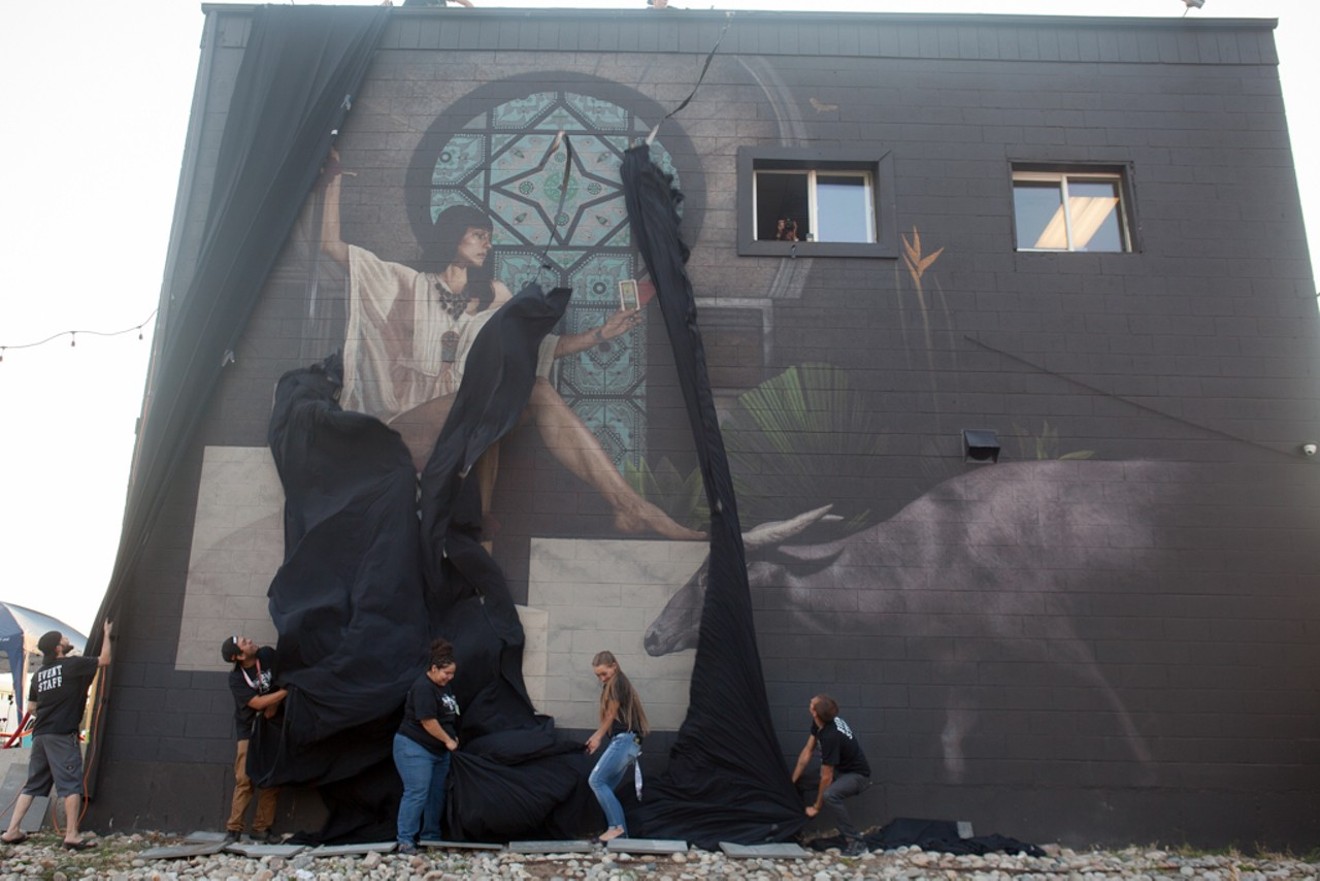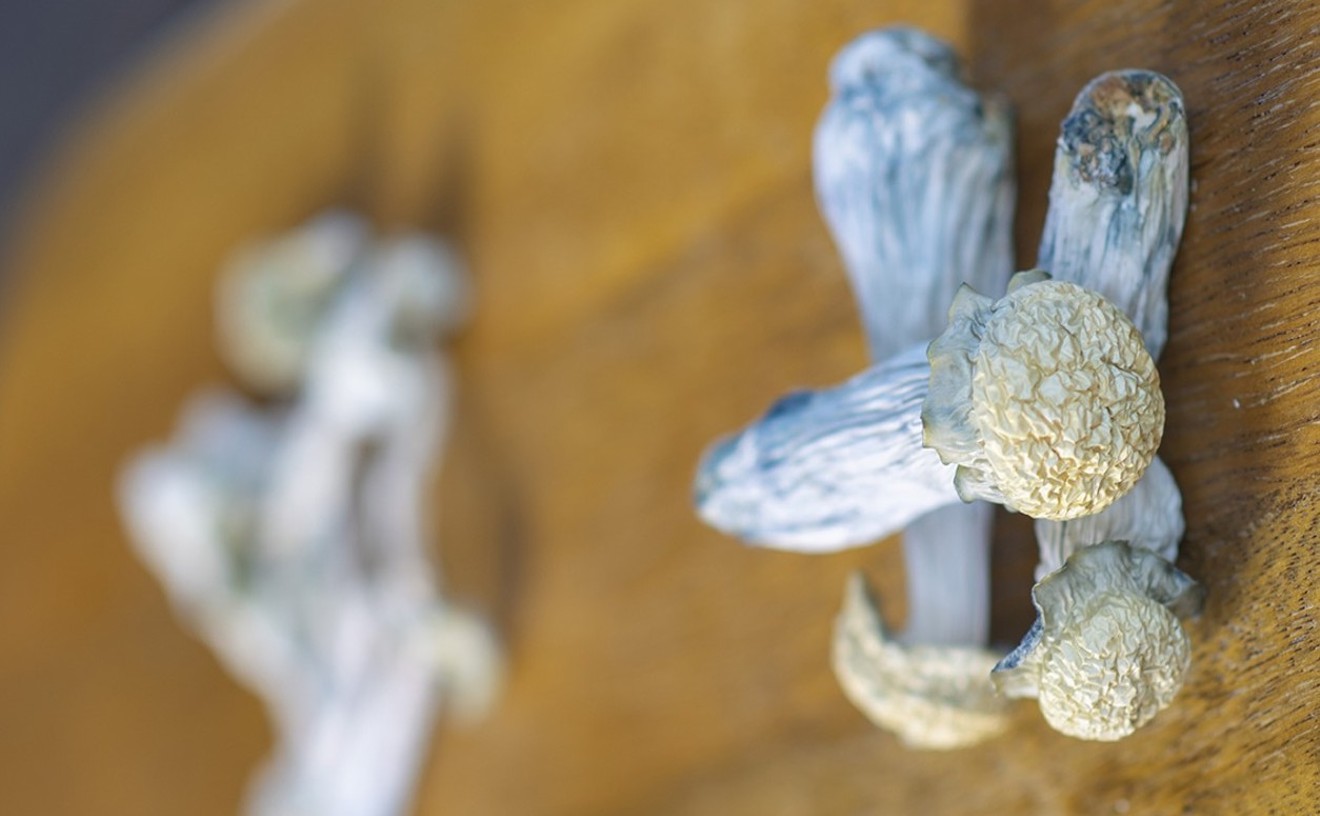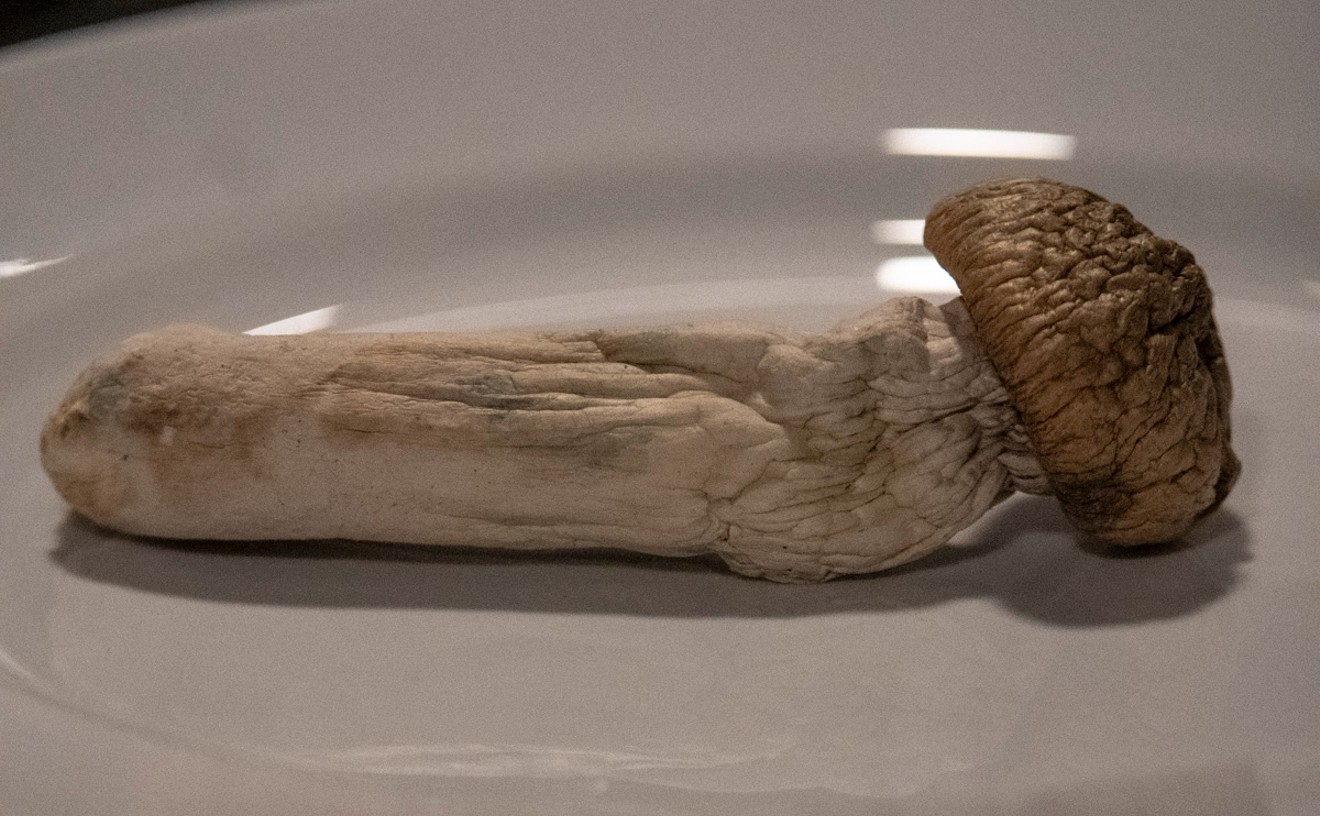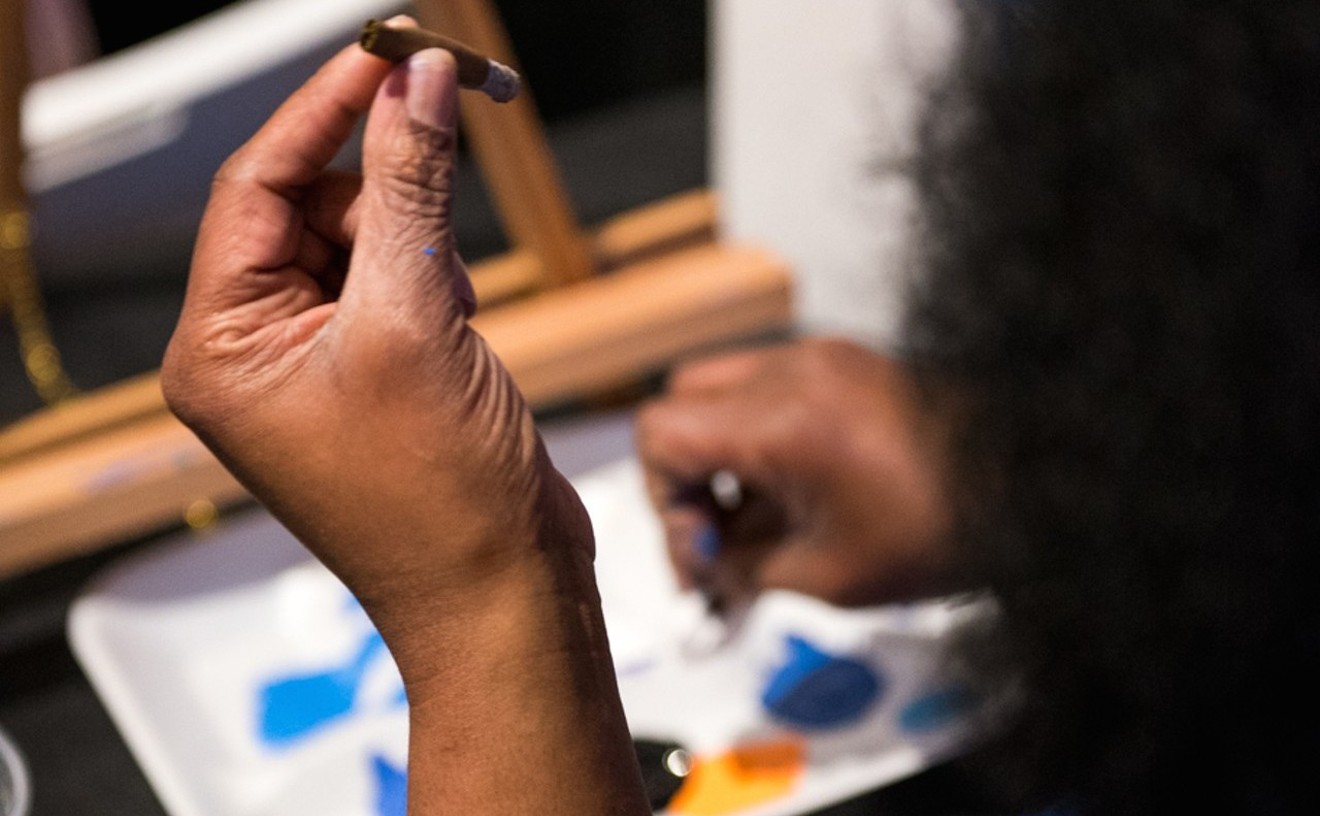All that activity creates new sponsorship and investment opportunities, and the legal cannabis industry wants in. On November 29, the CBCA hosted a discussion at The Source, to talk about how the pot community can get more involved in local culture...and how artists can approach marijuana businesses.
Both industries believe they'd benefit from each other: Finding funds for local arts projects and venues is no cakewalk, and cannabis businesses are eager for sponsorship partners.
According to the Colorado Department of Revenue, the cannabis industry has generated over $5.6 billion in sales since retail sales began in January 2014, and well over $800 million in tax revenues. As the industry gains staying power, it also wants to make its mark on arts and culture.
Yet for many people who work in the arts, taking money from cannabis donors seems risky. This paradigm has shifted for alcohol sponsorships, but that took decades. So how does cannabis navigate new partnerships with the arts?
“It’s still seen as money-laundering,” says cannabis licensing attorney Tom Downey. “Everyone in this industry aids and abets when they sell to marijuana industries. We work with the IRS, and they aid and abet us in the transaction — [but] federal policy of non-enforcement is pretty simple as long you are in compliance with state marijuana law."
Despite the federal illegality, Downey has signed off on numerous licenses for marijuana dispensaries, and claims no one has lost a license over a cannabis partnership. Still, the plant remains illegal at the federal level, leaving many arts-program directors and CEOs afraid of the implications.
Kelly Perez, founder of social-responsibility consultant KindColorado, believes the pot industry needs to expand its partnerships if cannabis business owners want to shake up the status quo. “We have to push the envelope, because there is change that needs to happen," she explains. "We need to think beyond just a donation. What is potential and mutual benefit between an arts organization and a cannabis business? It doesn’t have to look like what we’ve seen before, and it doesn’t have to be breaking the law."

This wheat paste popped up at L'Eagle the same week Shepard Fairey was in town for Crush Walls.
Courtesy of Shawna McGregor
Chris Zacher helped introduce the Levitt Pavilion to town, and is credited with growing the scope of City Park Jazz while managing the program from 2006 to 2014, so he knows a thing or two about finding sponsors. While trying to bring Levitt Pavilion (a venue that provides dozens of free concerts every summer) to Denver several years ago, Zacher enlisted the help of the Colorado Harvest Company dispensary chain and O.penVape, one of the biggest cannabis companies in the country.
Working with pot companies is largely the same as working with any other partner, he says, but local governments might apply different rules.
“I don’t think the relationship is any different with a cannabis partner than it is for any other partner; it’s just setting clear expectations for what you are able to get for the donation or the sponsorship you are trying to buy," he says. "The difference is the rules that exist for outdoor advertising, and if you are trying to do something within the city, and what that city’s rules and regulations are."
But if anyone is able to deal with tricky rules and regulations, it's cannabis business owners. L'Eagle dispensary co-owner Amy Andrle has figured out how to become the first cannabis business to receive Certified Green designation from the City of Denver for environmentally friendly practices, and has been a visible partner in the annual Crush Walls event. (It's even rumored that OBEY founder Shepard Fairey threw up a wheat paste piece at L'Eagle during Crush week in September.)
Being a small-business owner gets competitive, Andrle explains, and there is a lot to be gained from supporting the arts. “We are a small business, and we look to make an impact,” she says. “We have had some very successful partnerships within the arts, whether it be sponsorship dollars or helping to facilitate materials for a project.”










